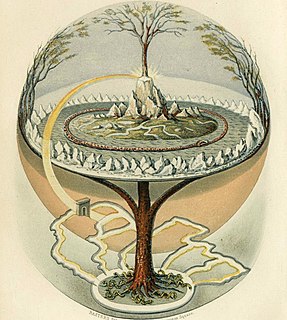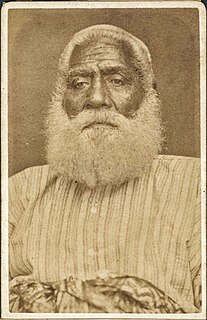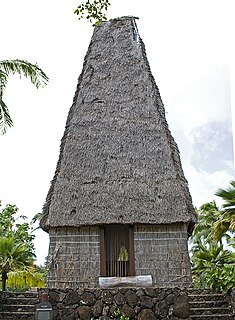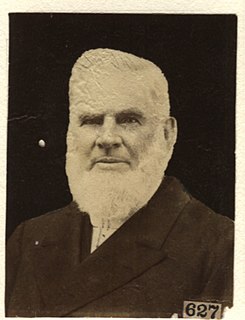Related Research Articles

The underworld, also known as the netherworld, is the supernatural world of the dead in various religious traditions and myths, located below the world of the living. Chthonic is the technical adjective for things of the underworld.
Fijian mythology refers to the set of beliefs practiced by the indigenous people of the island of Fiji. Its gods include Degei, a serpent who is the supreme god of Fiji. He is the creator of the (Fijian) world. He judges newly dead souls after they pass through one of two caves: Cibaciba or Drakulu. A few he sends to paradise Burotu. Most others are thrown into a lake, where they will eventually sink to the bottom (Murimuria) to be appropriately rewarded or punished.
In the mythology of Fiji, Ratumaibulu is a god of great importance who presides over agriculture. In the month called Vula-i-Ratumaibulu, he comes from Bulu, the world of spirits, to make the breadfruit and other fruit trees blossom and yield fruit. He is said to be a snake god.
Bulu may refer to:
In the Melanesian mythology of Fiji, Burotu is the paradise-underworld. Newly dead souls are judged by Degei, and a few go to Burotu. The rest go to Murimuria.
In pre-Christian Fijian mythology, Murimuria is part of the underworld. According to Fijian religion, after a man dies, his soul is brought over a stretch of water by a ferryman, and has to face many dangers on the other side by going through the Path of the Souls. For unmarried men, there seems to be no chance of surviving this path, because even if they escape the Great Woman, they would be killed by the monster Nangganangga, since no one ever got away from it, while married men could survive, if they withstand the Pandanus tree and the armed giant Killer of Souls. The survivors are judged by the god called Degei. Those who had the favor of Degei are instructed not to try to cross the lake. These go to Burotu. The rest inevitably try cross the lake by a boat that always capsizes. They eventually sink to the bottom, Murimuria, and are rewarded and punished appropriately.
In Fijian mythology, Degei, enshrined as a serpent, is the supreme god of Fiji. He is the creator of the (Fijian) world, fruits, and of men and is specially connected to Rakiraki District, Fiji. He judges newly dead souls after they pass through one of two caves: Cibaciba or Drakulu. A few he sends to paradise Burotu. Most others are thrown into a lake, where they will eventually sink to the bottom (Murimuria) to be appropriately rewarded or punished.
In Fijian mythology, Qurai (Ngurai) is a god of Somosomo. He once changed himself into a rat so he could attend a meeting of the gods unseen.

Ratu Seru Epenisa Cakobau was a Fijian Ratu and warlord (Vunivalu) who united part of Fiji's warring tribes under his leadership, establishing a united Fijian kingdom. He was born on Natauloa, Nairai Island in Lomaiviti but spent his youth years on Vanuaso, Gau, Lomaiviti. later returning to Bau to re-establish his Father's Ratu Tanoa Visawaqa reign. Ratu Epenisa Seru Visawaqa was given the name "Cakobau" meaning destroyer of Bau returned with most of his warriors from Vanuaso, Gau, Lomaiviti to coup the leadership in Bau then and later takeover his father's title; known after his father as the 6th "Vunivalu" or Warlord of Bau.
Fijians are a nation and ethnic group native to Fiji, who speak Fijian and share a common history and culture.
Nukulau Island is a small islet belonging to Fiji. It is close to Suva, Fiji's capital, which lies about ten kilometers to the west. It is an island rich in history, which has played a pivotal role in Fiji's demographic and political development over the past 160 years.

In Fijian mythology, Bulu is a name for the 'world of spirits'. In the month called Vula-i-Ratumaibulu, the god Ratumaibulu comes from Bulu, the world of spirits, to make the breadfruit and other fruit trees blossom and yield fruit. Ratumaibulu is a god of great importance who presides over agriculture.
Bau is a small island in Fiji, off the east coast of the main island of Viti Levu. Bau rose to prominence in the mid-1800s and became Fiji's dominant power; until its cession to Britain, it has maintained its influence in politics and leadership right through to modern Fiji.
Ratu Sairusi Nagagavoka (1920–2014) was a Fijian chief and political leader from Ba Province. He held the traditional title of Momo na Tui Ba , commonly abbreviated to Tui Ba Bulu, and as such was one of two paramount chiefs in the Ba district of Ba Province. He was the President of the Party of National Unity (PANU), which he founded in 1998.
Bulu is a Bantu language of the Bulu people of Cameroon. The language had 174,000 native speakers in 1982, with some 800,000 second language speakers in 1991. Its dialects include Bene, Yelinda, Yembana, Yengono, and Zaman. Bulu was formerly used by colonial and missionary groups as a lingua franca in the region for commercial, educational, and religious purposes, though it is today becoming less frequent in those spheres.

Religiously, Fiji is a mixed society with most people being Christian, with a sizable Hindu (27.9%) and Muslim (6.3%) minority, according to the 2007 census. Religion tends to split along ethnic lines with most Indigenous Fijians being Christian and most Indo-Fijians being either Hindu or Muslim.
Joeli Bulu became a Christian in 1833. He was one of a band of Tongan teachers who came to Fiji in 1838, and pioneered the work of the Christian Church in this group. He served the Church in Fiji for almost four decades. Many others were great in the same way. Paula Vea, another dynamic Christian missionary was a contemporary of his.

James Calvert, was a Methodist missionary.

The i-sala is a traditional Fijian headdress, similar in shape to a headscarf or turban, and part of the traditional attire of the chiefly and priestly classes of the islands of Fiji as a sign of rank. Other variant of the name include sala, i-zinu, i-uso or i-uho, vauvau or paupau and masi turban. I-sala or ai Sala literally means "wrapper or envelope" in the Fijian language.
Sorokoba is a village in Bulu District, Ba Province, Fiji.
References
- T. Williams, J. Calvert, Fiji and the Fijians, Heylin, 1858.